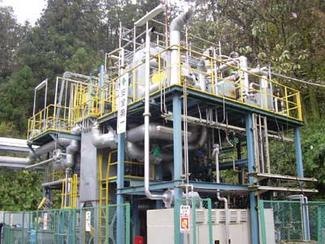Kerala Moves Towards Waste To Energy, Adopts ‘Goa Model’ For Waste Management

The pathway to a consistent increase in the development of waste-to-energy or biogas plants is becoming likely in the southern state of Kerala. In a significant development, Kerala is set to emulate Goa’s successful approach to solid waste management, wherein waste is transformed into biogas for various purposes, including power generation.
The National Green Tribunal has mandated the Kerala Government to adopt the Goa model for solid waste management and has provided specific guidelines for the implementation. A team appointed by the Kerala State Pollution Control Board recently conducted a study in Goa to examine the effective execution of the model and has compiled a comprehensive report.
Since 2018, a case addressing the reduction of waste in rivers has been under review at the Green Tribunal. In response to Kerala’s concerns about land scarcity for solid waste treatment plants, the Green Tribunal recommended the adoption of the proven Goa model.
Goa’s waste management initiatives have successfully aimed to eradicate garbage dumps and reclaim land. The state has been divided into three zones for the systematic collection of waste from residential areas, schools, local bodies, and national highways. Collected waste undergoes scientific processing in specialized plants, ultimately being converted into gas fuel to generate electricity. The Goa Waste Management Corporation (GWMC) launched these projects in 2016.
Recently, Kerala Government endorsed proposals from BPCL and GAIL to establish bio-CNG plants in key urban centers. Immediate action is set to commence on the bio-CNG plant in Kochi, with plans for it to become operational by December 2024. Thiruvananthapuram, Kozhikode, and Thrissur are also under consideration for similar projects. Additionally, the central government has mandated compressed biogas blending (CBG) by oil marketing companies.




